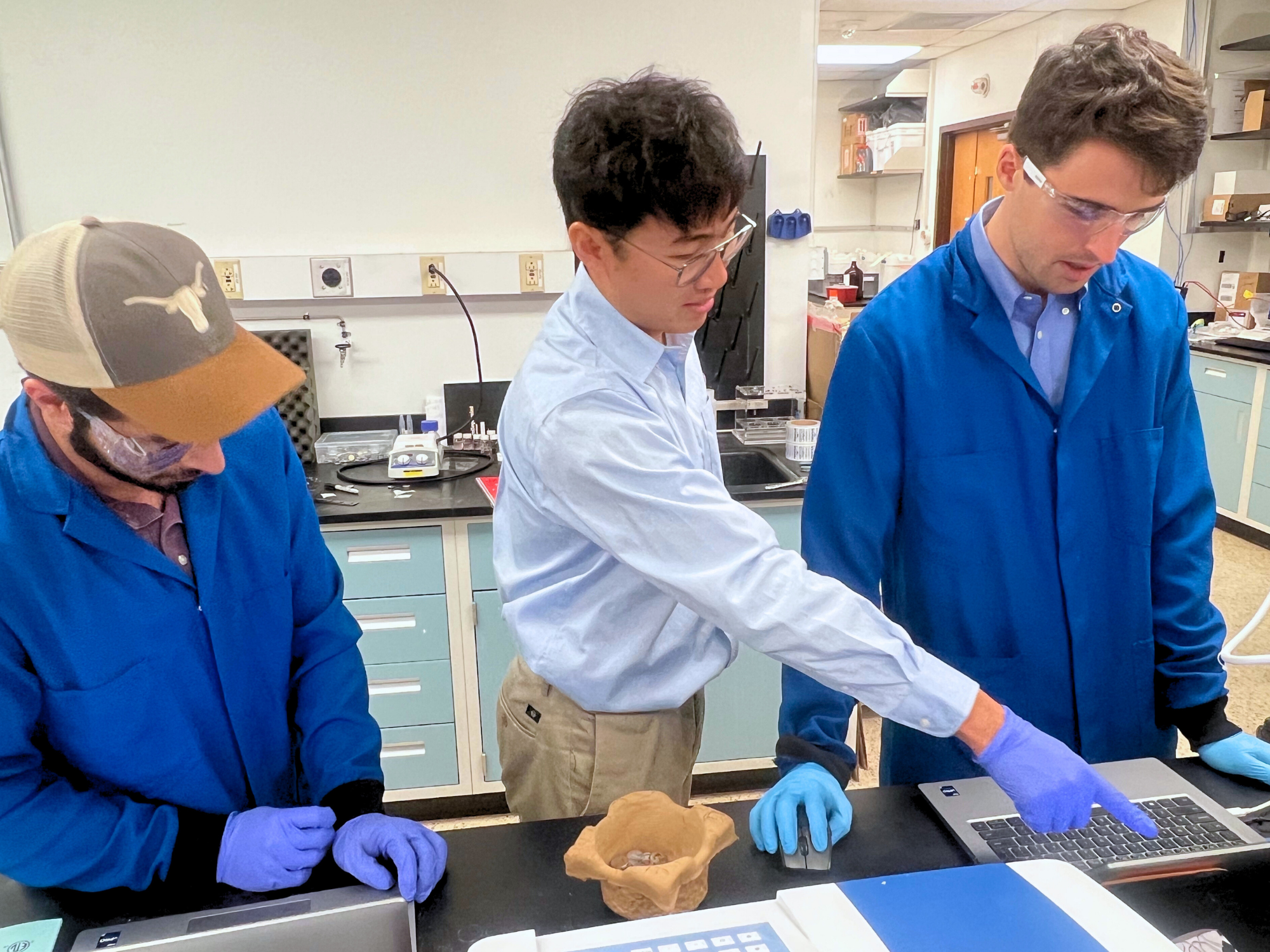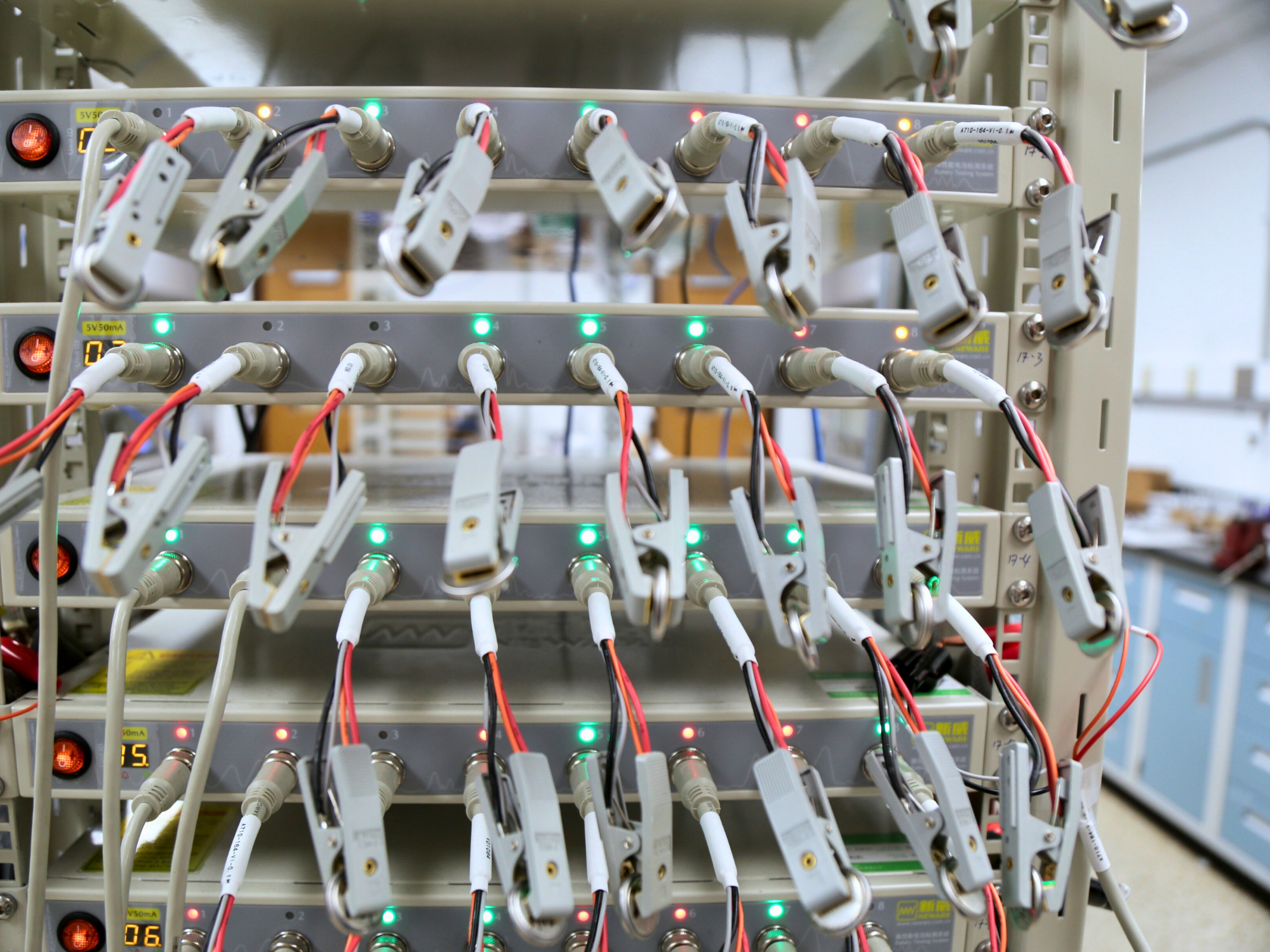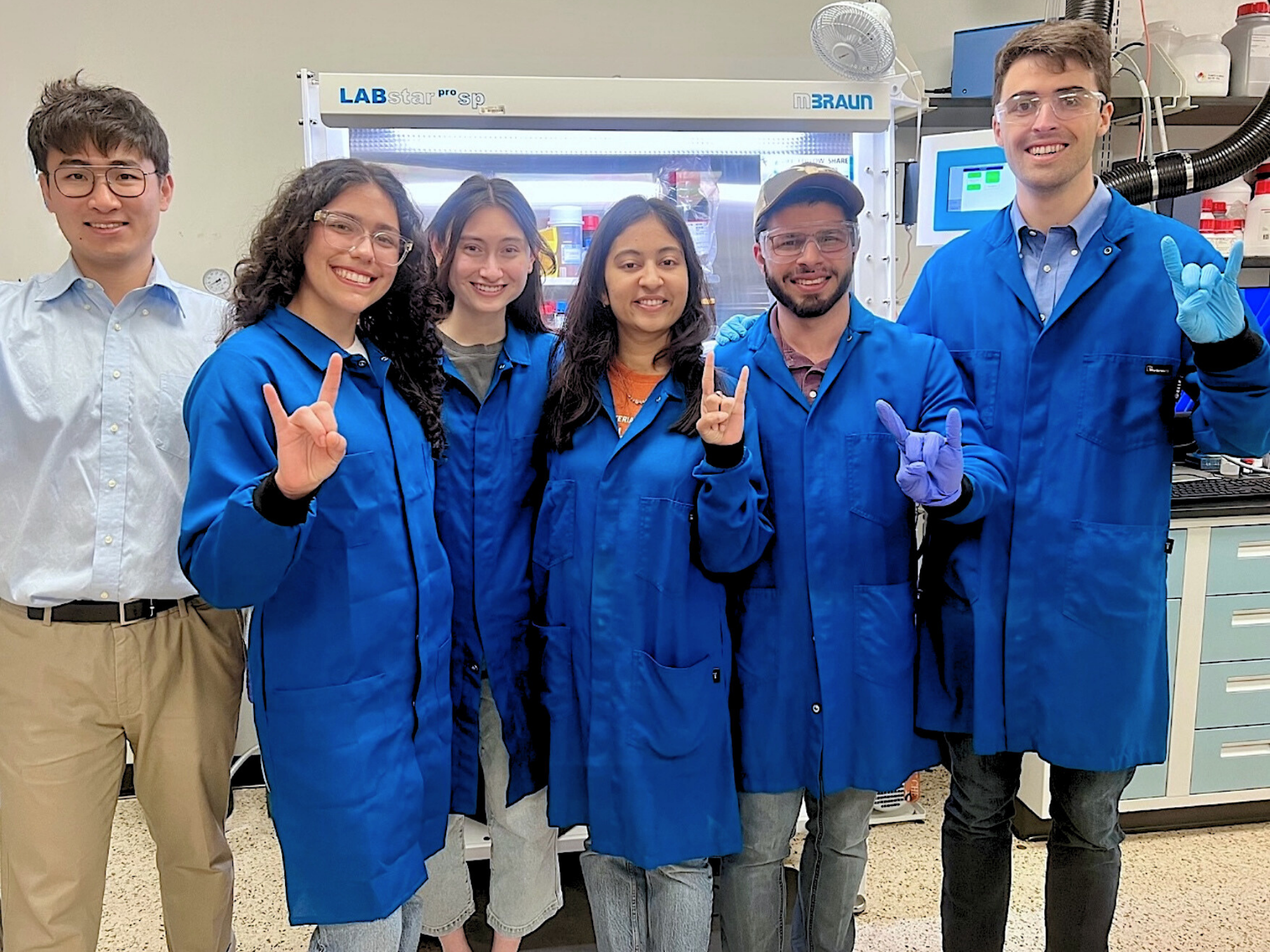
Assistant Professor Kent Zheng has received Materials Research Society’s (MRS) Nelson “Buck” Robinson Science and Technology Award for Renewable Energy, which recognizes young professionals for their ‘development of novel sustainable solutions for the realization of renewable sources of energy.’
Zheng’s work identifies disruptive battery technologies that move us beyond Lithium-ion dependencies, with a focus on the critical phenomenon that takes place during electrochemical dissolution during battery discharge.
During the 2025 MRS Fall Meeting & Exhibits in Boston, Zheng accepted his award and presented paper: Probing Far-from-Equilibrium Electrochemical Interfaces for Next-Generation Energy Storage.
THE ABSTRACT
Electrochemically driven phase transitions play a critical role in industrial processes and emerging technologies, such as high-energy metal anodes in batteries. High-power operations like fast charging and pulse delivery require driving these reactions at unprecedented rates in far-from-equilibrium regimes. Using operando techniques, complemented by in-depth ex situ methods, Zheng’s research reveals highly local and transient behavior at dynamic electrochemical interfaces.
Zheng will highlight how hidden physicochemical states critically impact the electrochemical response and morphological evolution of aqueous Zn metal electrodes. In other words, zinc batteries change internally in ways we don’t directly see, these hidden changes affect performance. To truly control these processes that are fast, constantly changing, and not in a stable state, there is a need to understand what’s happening inside the battery while it’s running, not just before or after.
“Zheng’s research provides foundational insights in energy storage technologies and accelerates the development of batteries based on earth abundant charge carriers,” offered Delia Milliron, former department chair. “Electrochemical processes such as mass transport during battery charging have been extensively studied, whereas the reverse process—discharging—has received little attention. His team discovered a new class of transient solid-electrolyte interphases formed during battery discharge, adding significantly to the current paradigm, reshaping our understanding of interfacial chemistry that governs electrochemical performance of sustainable energy storage systems.”
A TOUR-DE-FORCE
Zheng earned his Ph.D. at Cornell University in 2020 under Professor Lynden Archer who said, “his seminal doctoral thesis paper, 'Regulating electrochemical growth of metals at rechargeable battery electrodes' (Science, 2019), is broadly considered a tour-de-force in the electrochemical energy storage field and a must-read for anyone wishing to understand the fundamentals of electrodeposition of crystalline materials at planar interfaces... Dr. Zheng is a rare talent.”
Zheng has conducted 70 peer-reviewed publications and serves as Associate Editor of ECS Advances. His group, Crystalline Materials for Energy & Sustainability (CMES), focuses on understanding and controlling electrochemical synthesis of crystalline materials for energy and sustainability. His contributions have been recognized with the Forbes 30 Under 30 Award (2025) and The Electrochemical Society (ECS) Electrodeposition Division Early Career Investigator Award.
THE UNDERGRADUATE EDGE
Zheng’s lab is making an effort to engage undergraduate researchers. He helped develop a battery lab module for an undergraduate laboratory course and designed a hands-on demonstration for high school visitors. Etienne Reine, a senior in Zheng's lab, just published his first-author research paper in American Chemical Society (ACS): Zn Metal Electroplating via Transient SEI Pulsed Methods: From μm to mm Scales. For his undergraduate core class, Chemical Engineering Materials, Zheng developed new elements focused on renewable energy materials and received an instructor rating on 4.86 out of 5.
--
Mention originally published in MRS.org.









